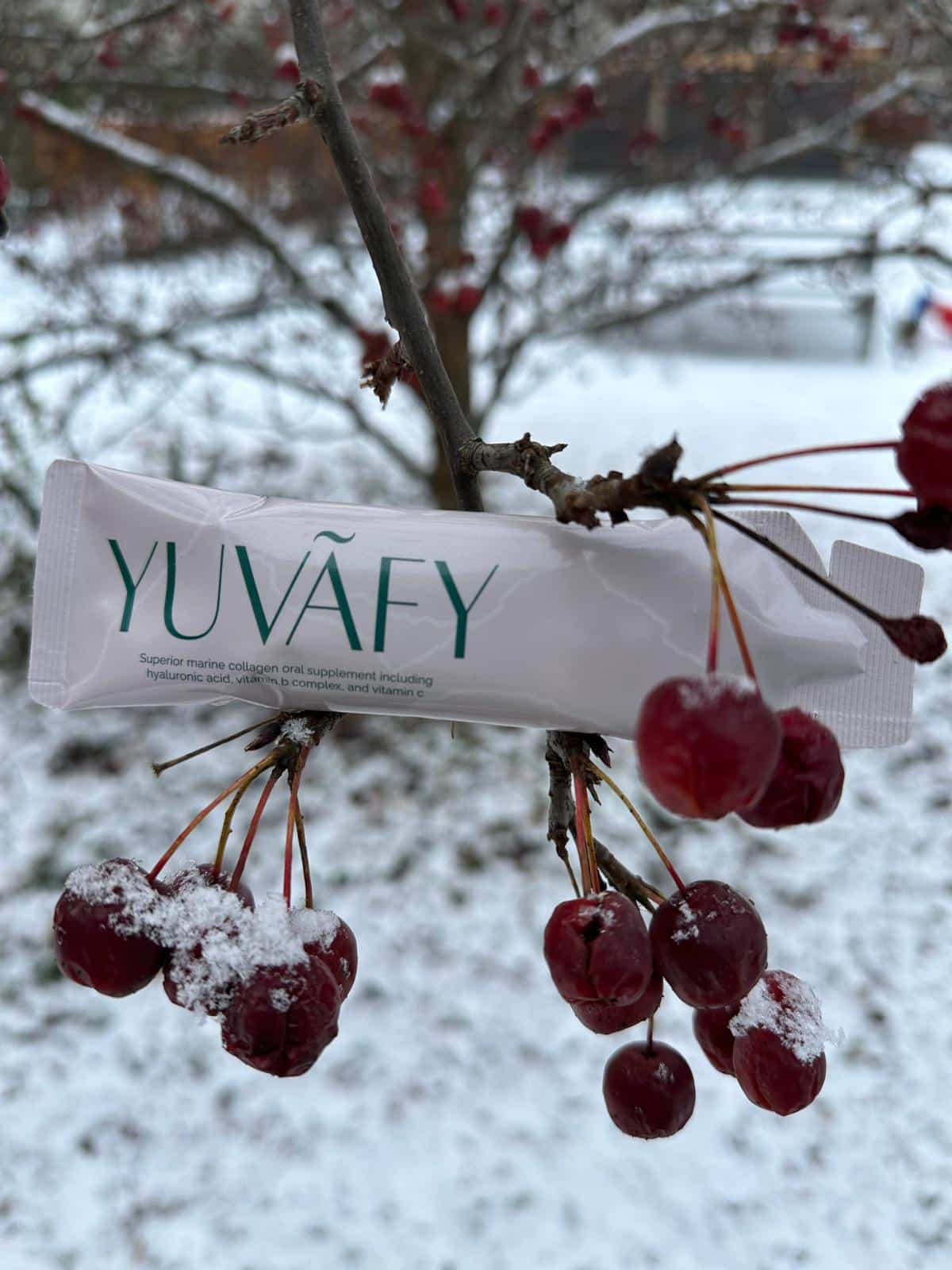Did you know winter can be just as ageing as summer? Sun damage takes twenty years to show up on your face as dark spots, but winter dehydration damages your skin immediately. (As a skin therapist, I love scaring my lazier clients with this fact).
Your skin dreads winter, and so does your therapist. Log-burning fires, piping hot showers, cold, dry air, and biting winds strip moisture from your skin barrier, leaving it dull, tight and red. I understand the temptation to turn up the heating and hibernate, but your skin barrier will pay the price.
Why is my skin so tight in winter?
Tightness is a massive winter warning sign. I start with a gentle interrogation when clients complain about tight winter skin. Is your central heating on full? Do you like sitting by the fire? Do you soak in a steaming hot bath? When they look guilty, I explain that moisture has evaporated from their skin – no wonder it feels parched.
Before reaching for a more decadent cream, remember that tight winter skin is dehydrated, not dry. (Dry skin lacks oil; dehydrated skin lacks water). Think of it this way: hydrated skin is moist like a plump grape; dehydrated skin shrivels like a raisin. (Harsh, but true). Even my oily skin is prone to winter dehydration.
WINTER SKIN SURVIVAL TIPS
Gentle cleansing
When clients complain of post-cleansing tightness, I advise them to switch to a gentle, non-foaming milk or cream. Ideally, I would ban foaming cleansers all year round because they strip precious oils from your skin, but I really put my foot down over winter.
Calm winter redness
A damaged winter barrier leaves skin vulnerable to sensitivity and redness, triggering conditions such as rosacea, eczema and psoriasis. Your overworked blood capillaries can’t cope with dashing between the cold outdoors and warm indoors, one moment dilating and the next contracting. Eventually, they stretch like an elastic band, and the skin stays blotchy. Stock up on products rich in anti-inflammatories, and turn down the heating.
Layer, layer, layer.
When the air is cold and dry, it grabs water from your skin instead, leaving it sensitive and inflamed; it feels rough because old skin cells can’t flake off. (Skin is made up of oil and water; oil sits on top of water, trapping it). There is no point adding an oil-rich cream if there is no water underneath. Your tight winter skin needs a hydrating serum, preferably with hyaluronic acid, not a heavier cream.
Go easy on anti-ageing products.
Brace yourself – you might need to dial down the anti-ageing actives over the winter to help support your sensitive barrier. Clients never want to hear this and underestimate the premature ageing caused by winter dehydration: thirsty skin shrinks, emphasising fine lines around the eyes and lips.
I nag them until they switch to more hydrating ingredients during the day and oil-based creams at night, rich in skin-identical ceramides and nourishing fatty acids to trap moisture in the skin and repair the barrier. It’s not forever – your face won’t fall down!
Enzyme instead of peel
My clients constantly complain that their winter skin looks dull. I explain the science, but they never listen: the skin produces more cells to protect it from the elements, but these pile up on the surface, blocking the light and making the skin look dull.
Many clients reach for a cocoon-like oil-based cream during the winter and then come to me when they break out. The air is drier, so your oil glands ramp up oil production to lubricate your skin. But if you don’t keep on top of your enzyming, these extra oils stick to the dead skin and clog the pores.
Keep on top of enzyming! A gentle enzyme mask removes what is ready to come off, whereas an acid or grainy scrub can remove live skin cells.
UVA
Winter skiers, I am looking at you. Collagen-damaging UVA rays are constant all year round, come rain or shine.
Lipbalm
Before you even consider lip fillers, stop neglecting the health of your lips. Lips are a barometer for the rest of your skin – cracked lips are a winter warning sign. Reapply lip balm when your lips get cold or wet; don’t forget SPF.
Key ingredients to feed winter skin:
Collagen-stimulating actives such as retinol and AHAs can dry out a sensitive winter skin barrier – so let’s stimulate collagen from the inside out instead. I recommend Yuvãfy Marine Collagen supplements to my clients because they trick your body into producing more collagen for smooth, firm, youthful skin.
Yuvãfy realises that skin-plumping collagen goes brittle over the cold, dry winter, so the right skincare and nutrition are vital. They cleverly enriched their collagen supplements with skin-friendly ingredients to winterproof your skin: hyaluronic acid (to help our skin retain moisture), vitamin C (to protect from pollution), and vitamin B to calm winter redness.
Hyaluronic Acid
Hyaluronic Acid: Humectant hyaluronic acid comes into its own in winter, binding water to the skin cells and plumping fine dehydration lines for soft, supple skin. More pro-ageing than anti-ageing, it makes skin look fresh by putting moisture back in the tissues, like adding water to a dried sponge. It is only temporary plumping, so keep taking your collagen supplements!
Vitamin C
Clients often get hung up about the percentage of Vitamin C in their skincare. Still, I explain that it’s more about absorption, healing the lower layer of skin and protecting your skin from pollution and premature ageing. For collagen synthesis, I recommend Yuvãfy collagen supplement drinks instead.
Vitamin B Complex
This happy, safe vitamin is just as important as retinol in the anti-ageing stakes but not nearly as arrogant. It seals and heals the skin without fuss and is perfect for down-trodden, sluggish skins that need love and nourishment. It repairs whatever has gone wrong with the skin cells and is perfect for addressing winter congestion, rosacea flares or post-acne staining.
By Charlotte Wilkes





